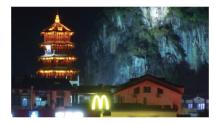China in the New Millennium: Art, Politics, and the Environment
Mt. San Antonio College - Third Annual Chinese Cultures & Histories Workshop
April 23, 2019
http://222.asdp-chinaproject.org/
Sasha Su-Ling Welland is Associate Professor of Gender, Women & Sexuality Studies, Adjunct Associate Professor of Anthropology, and affiliate faculty in China Studies and Comparative History of Ideas at the University of Washington. Her research focuses on transnational feminisms, ethnographic aesthetics, and visual culture. She is the author of A Thousand Miles of Dreams: The Journeys of Two Chinese Sisters (2006) and Experimental Beijing: Gender and Globalization in Chinese Contemporary Art (2018). Title: Art Worldings: Gender and Globalization in Chinese Contemporary Art
Abstract: During the lead-up to the 2008 Beijing Olympics, the censorious attitude that characterized China’s post-1989 official response to contemporary art gave way to a new marketdriven, culture-industry valuation of art. Through ethnographic analysis of cultural encounters involving artists, curators, officials, and urban planners, this talk examines the interlocking power dynamics in this transformational moment and rapid rise of Chinese contemporary art into global phenomenon. A contentious encounter between U.S. feminist art icon Judy Chicago and Chinese artists, during a restaging of the Communist Red Army’s Long March as transnational art project, reveals and undoes center-periphery understandings of the world that have structured discourses of global art and global feminism. The subsequent work of Lei Yan, one of the participants in this encounter, draws attention to haunting absences in conventional stories of art, feminism, and nation. Her artistic practice produces a differential consciousness about the shifting role of art—as ideological, institutional, and imaginative—within various configurations of power. It also opens feminist sightlines of comparison with Ai Weiwei’s globally recognized bad boy art of political dissent.
